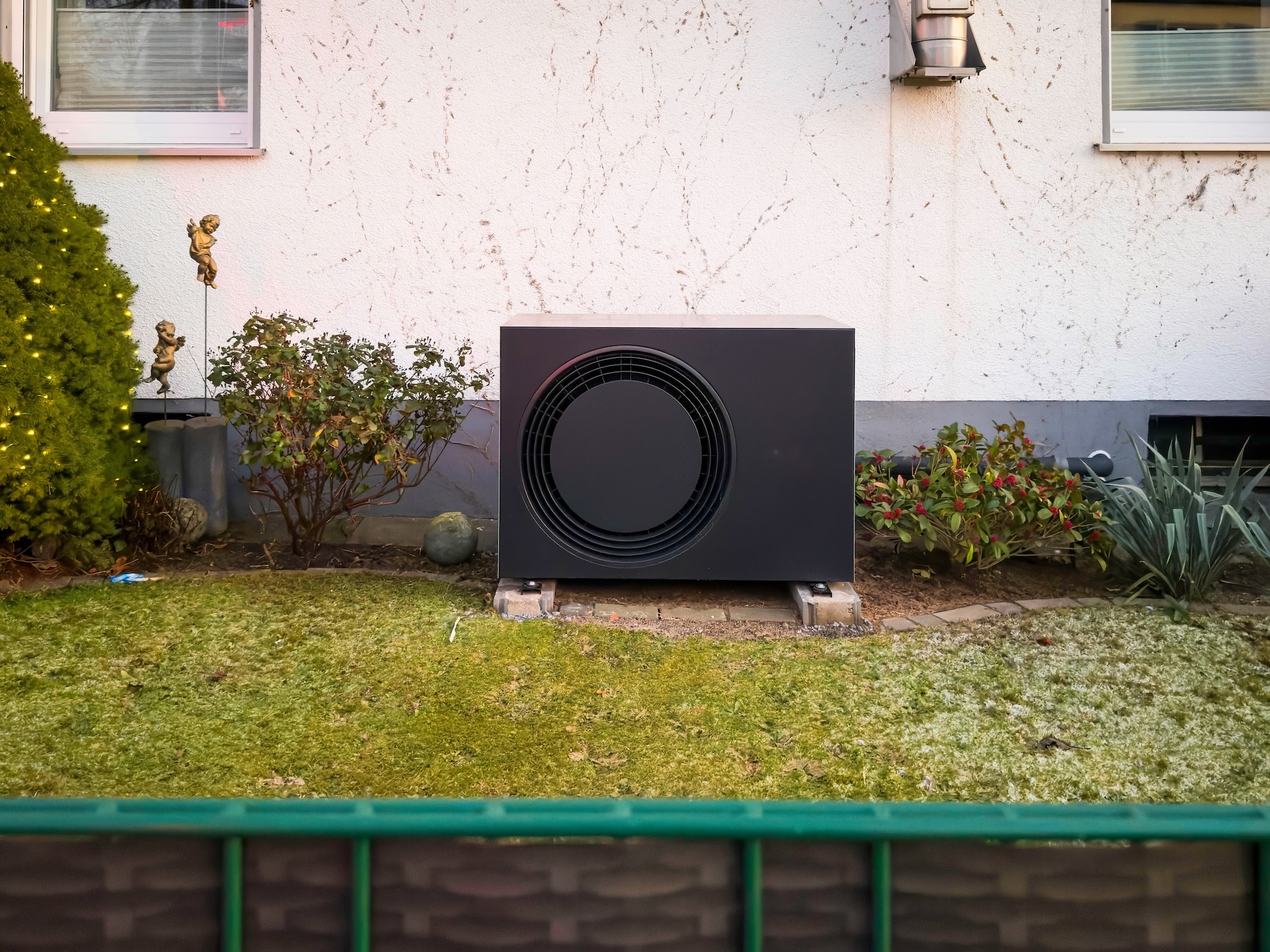In 2026, running a heat pump may cost slightly more than a gas boiler – about £30 – £40 extra per year for a typical UK home. However, actual results depend on insulation, heating habits, and electricity tariffs. Homes with solar panels or smart tariffs can offset that cost entirely, while off-gas properties switching from oil or electric heating often save money with a heat pump.
Heat Pump vs. Gas Boiler Running Costs in 2026

With energy bills still high in 2026, many South-West homeowners are asking the big question: what’s the real difference in running costs between a heat pump and a gas boiler? And more specifically: does switching to a heat pump make financial sense right now?
The answer isn’t black and white but it is getting clearer.
In this guide, we break down the real-world numbers behind heat pump vs gas boiler cost in 2026. Using typical homes across Gloucestershire as examples, we’ll show where heat pumps save money, where they might cost slightly more, and what factors tip the balance. We’ll also share Hewer FM’s perspective as experts who install – and maintain – both types of systems.
The Cost of 1 kWh
To compare the running cost of a heat pump vs gas, we need to look at two things: price per unit, and system efficiency.
| Fuel Type | Price per kWh (2026) | Efficiency | Effective Cost per Heat Unit
|
| Gas (boiler) | ~7p | ~90% (0.9) | ~7.8p |
| Electricity (heat pump) | ~30p | ~300% (COP 3.0)
|
~10p |
So while electricity is over four times the price of gas, a heat pump uses far fewer units. This narrows the cost gap significantly. In mild South-West climates where heat pumps perform well, that efficiency often holds steady, making them more competitive than you might think.
Typical Gas Boiler Bill

Let’s look at a typical home in our region. A 3-bed semi-detached house in Gloucester, built in the 1990s and reasonably well insulated. According to BEIS data, the average gas usage for a home like this is around 12,000 kWh per year.
At today’s 2026 gas price cap of 6p per kWh, that works out to:
12,000 kWh × £0.07 = £840/year
That’s your heating fuel cost alone – before maintenance or servicing, which usually adds another £80–£120 annually for a boiler check.
This is the reference point we’ll use when comparing heat pump bills vs gas bills. It’s worth remembering this figure can vary based on thermostat settings, insulation levels, and boiler efficiency. A newer condensing boiler might run a little cheaper. An older, unserviced one? Likely higher.
Still, £840 is a fair benchmark for many South-West homes with gas heating in 2026.
Typical Heat Pump Bill
Now let’s imagine the same Gloucester home has switched to a modern air source heat pump with a typical Coefficient of Performance (COP) of 3 – meaning it delivers 3 units of heat for every 1 unit of electricity used.
To meet the home’s 12,000 kWh heat demand, the system would use roughly 4,000 kWh of electricity per year.
At 2026 rates of 30p per kWh, that gives:
4,000 kWh × £0.30 = £1,200/year, or £100 per month
That puts the heat pump cost per month at about £30 higher than the gas boiler example—matching The Guardian’s analysis that, at current tariffs, heat pump users may pay ~£32 more annually on average.
Of course, real-world results vary. Homes with solar panels, off-peak tariffs, or better insulation may pay far less—sometimes bringing heat pump running costs below gas, especially in milder regions like Gloucestershire where performance stays efficient year-round.
When Heat Pumps Save Money
If you’re not on the gas grid, a heat pump might already be your cheapest option.
Many rural homes in the South-West rely on oil, LPG, or direct electric heating, all of which can be expensive or volatile. In fact, 24% of South-West homes are off-grid, making them ideal candidates for an upgrade.
Take oil, for example. At 50p per litre, 2,000 litres per year costs around £1,000. That’s on par with (or more than) a heat pump powered by 6,000 kWh of electricity.
Add in the £7,500 Boiler Upgrade Scheme, and the case becomes stronger. Hewer FM can help you through the heat pump grant application, which brings installation costs within reach.
If you’re heating with outdated oil or resistive electric systems, switching to a heat pump could lower your running costs—starting from year one.
Future Outlook

Looking ahead, the balance between heat pumps and gas boilers is set to shift.
The government is actively considering moving green levies off electricity and onto gas – a change that could reduce electricity prices and tip the scales in favour of heat pumps. Some analyses suggest this could save households £300 per year on bills.
Gas prices also remain volatile due to global supply issues. And as carbon reduction targets tighten, carbon pricing or gas-specific taxes may be introduced.
At the same time, many energy providers now offer smart tariffs or Economy 7-style plans, allowing heat pumps to run more cheaply during off-peak hours—further narrowing the gap.
In short, while heat pumps may cost slightly more to run now, the future increasingly favours them. If you’re upgrading from a gas or oil boiler, you don’t have to overhaul your entire pipework: Hewer FM’s pre-assembled Heat Saviour retrofit unit makes air-source and ground-source installations easier, more affordable and more reliable.
Beyond Cost: Comfort & Carbon
When comparing systems, cost is key, but it’s not the whole story.
Heat pumps offer steady, gentle heat throughout the day, rather than the quick on-off blasts of a gas boiler. This creates a more even indoor temperature and fewer cold spots.
They’re also safer – no combustion, no flue gases, and no risk of carbon monoxide leaks.
From an environmental perspective, a heat pump can cut your heating-related emissions by up to 70%, especially as the UK’s electricity grid continues to decarbonise. That’s around two tonnes of CO₂ saved annually for a typical household.
And as gas boilers face potential phase-out policies, investing in a heat pump now helps future-proof your home for comfort, compliance, and climate.
Hewer FM’s Take & Case Study
At Hewer FM, we install and maintain both gas boilers and heat pumps – so we’re not here to push one over the other. We simply want Gloucestershire homeowners to make informed decisions that suit their home, budget, and long-term goals.
Take Mr and Mrs Jones in Gloucester, for example. They switched to a heat pump in late 2024, moving away from a 15-year-old gas boiler. That first winter, their electricity bills rose by around £150 compared to the previous year’s gas costs, roughly what national figures suggest.
But they also had solar panels fitted that spring. By summer, their electricity bills had dropped dramatically, and over the year, their net costs balanced out.
More importantly, their home’s heating is now steadier and quieter, and they’re saving an estimated two tonnes of carbon annually. They’ve also future-proofed their home, avoiding any concerns about boiler bans or rising gas prices.
We’re happy to simulate similar cost comparisons for your home, so get in touch today.
Conclusion

In 2026, the heat pump vs gas boiler cost comparison is closer than ever, especially in well-insulated homes or those using solar. While gas may still have a slight edge in some cases, the future is clearly shifting toward heat pumps as tariffs evolve and carbon policies tighten.
The best way to know what’s right for your home? Ask the experts.
Hewer FM offers impartial advice, tailored energy usage comparisons, and full support for both technologies – from consultation to installation and beyond.

